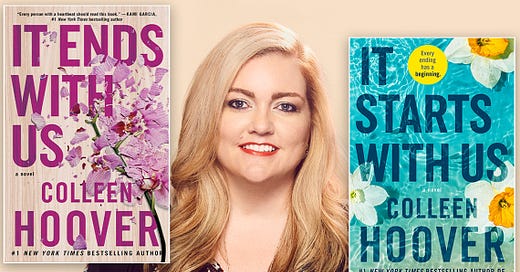Writer Career Path #2: Genre Fiction Writer
Why storytellers are the ones who end up making the most money.
Dear Writer,
So you want to be a Genre Fiction Writer?
Sci-Fi
Thriller
Fantasy
Comedy
Suspense
Romance
Etc.
The first thing you need to know is there is a great deal of debate in the publishing world as to where to draw the line between Literary Fiction and Genre Fiction. Can a mainstream suspense or romance story also win a Booker Prize? (The Booker Prize is a literary award given each year for the best novel written in the English language.) Technically, yes; but is a page-turning, plot-driven novel likely to impress New York’s literary elite? Probably not. And the inverse is also true: can a Pulitzer Prize winning novel go mainstream? Sure—the 1982 novel The Color Purple won both a Pulitzer Prize and the National Book Award in 1983, and since then has sold more than 5 million copies. The novel was also turned into an Academy Award-nominated film (starring Oprah Winfrey, directed by Steven Spielberg), as well as adapted into a Tony-nominated Broadway musical.
However, broadly speaking, most Genre Fiction stories do not win literary awards. And most Literary Fiction stories are not the ones turned into a Netflix series or blockbuster movie.
These two worlds are kept separate, and are defined as follows:
Genre Fiction is any story that can be classified by a subcategory (Mystery, Thriller, Romance, Western, Sci-Fi, etc.), and the value to the reader is the plot and “what happens” in the story. In Hunger Games, for example, you read not because of how poetic the sentences are, but because you want to know what happens to Katniss and District 12.
Literary Fiction is any story that cannot be (cleanly) classified by a subcategory, and the value to the reader is “how” the story gets told and the quality of the language. In Portnoy’s Complaint, for example, you read not because of any central plot, but because of the way Alexander Portnoy sees and articulates his world with such self-deprecating hilarity.
And you can see how separate these worlds are when one author crosses over from one side over to the other.
In 2003, critically-acclaimed Genre Fiction writer, Stephen King, was awarded the National Book Award Medal for Distinguished Contribution to American Letters. And in his acceptance speech, right out the gate, he addressed the fact that when he was announced as the winner, a large number of people in the literary world did not think he deserved the award.
Why?
Because despite selling millions and millions of copies, Stephen King writes plot-driven stories easily classified by a subcategory (suspense). And the literary niche does not define themselves by subcategory or plot, but by language and social commentary.
The Art Of Genre Fiction
In my opinion, the debate as to what constitutes as Genre Fiction versus Literary Fiction is subjective at best and unproductive at worst.
When it comes to deciding which Writer Career Path is right for you, it’s much more helpful to take a data-driven approach. And according to industry reports, the fiction categories that generate the most sales are:
Romance ($1.44 billion)
Crime/Mystery ($728.2 million)
Science fiction/fantasy ($590.2 million)
Horror ($79.6 million)
In addition, women account for nearly 80% of fiction sales in the US, UK, and Canada. (Keep that in mind next time you sit down to write a novel!)
Translation: if you want to become the most financially successful “storyteller” you can, then it’s worth recognizing the widest number of readers are in Genre Fiction categories (not the undefined literary niche)—and maybe more importantly, acknowledging that there are more women sitting in the audience than men.
When writers think about how to achieve success in their careers, this is something that almost never gets talked about. Writers often think success is purely a function of skill. And it’s not. Success as a writer has much more to do with the career path you choose—because it’s the path or vehicle that determines the total addressable market of potential readers.
Here’s an easy example.
Keep reading with a 7-day free trial
Subscribe to The Art & Business of Digital Writing to keep reading this post and get 7 days of free access to the full post archives.




